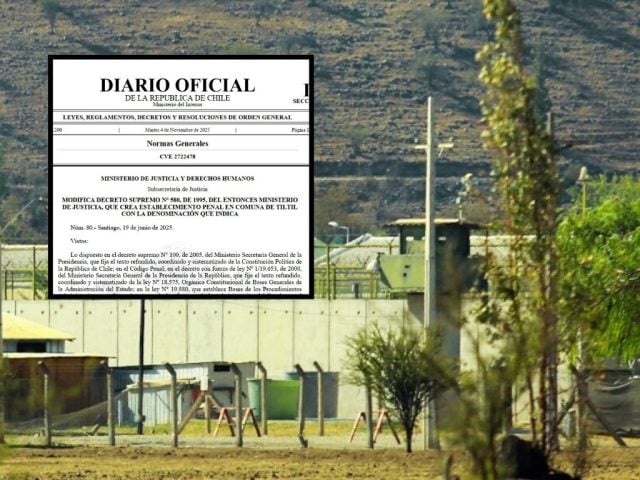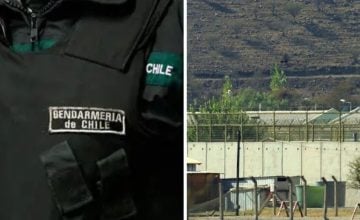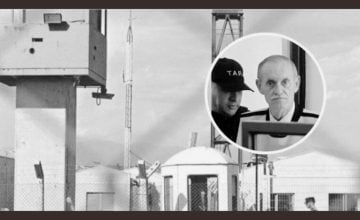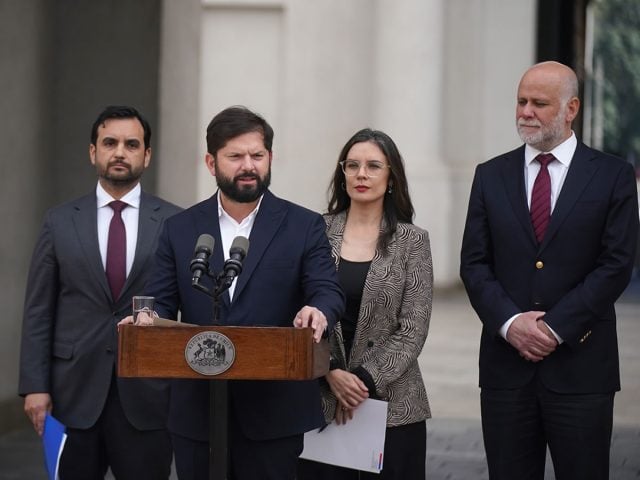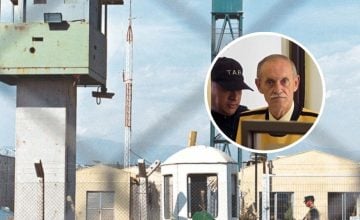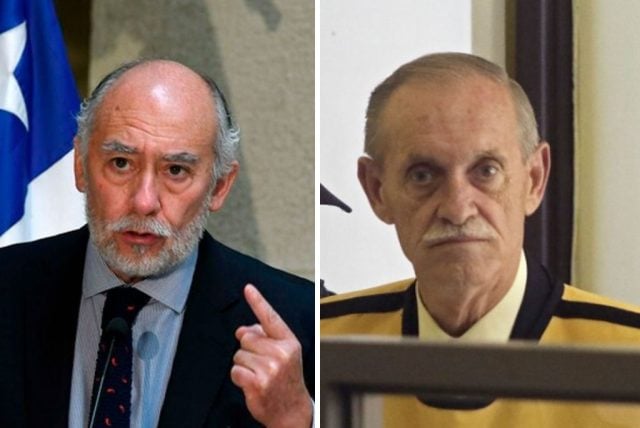Original article: El decreto que le duele a la derecha: se termina el “estatus VIP” de Punta Peuco
The privilege is gone. A decree from the Ministry of Justice and Human Rights, published in the Official Gazette, eliminates the designation of «special penal unit» for Punta Peuco and subjects it to the common regulations governing prisons within the system. In simple terms: the «VIP prison» no longer exists.
For conservative factions and the far right, this change is significant for two reasons: first, it dismantles a political symbol — the facility where those convicted of human rights violations during the Pinochet dictatorship, including Miguel Krassnoff, serve their sentences; secondly, it eliminates the formal disparities that had shielded this prison from the rest of the penal system.
What made Punta Peuco «special»? The decree establishing it classified it as a special penal unit, with a distinct name and purpose compared to the common regime, under the pretext of “security conditions.” The new decree eradicates that classification, changes the facility’s name to indicate that it will now be governed by the general prison regulations, just like any correctional center.
Key Points of the Decree Changing Punta Peuco to a Standard Prison
- Eliminates the designation of «special penal unit» for the facility.
- Changes the name to Tiltil Correctional Center.
- Subjects the facility to the Regulations for Penal Establishments (DS N° 518/1998): common regime.
- Confirms that the direction and administration fall under the responsibility of Gendarmería de Chile.
- Modifies the original 1995 decree to align the name and purpose with the common regime.
- Effective: from its publication in the Official Gazette.
- Oversight by Contraloría: this change does not limit protections for elderly inmates or other necessary safeguards.
What Was Punta Peuco’s “VIP Status” (and Why It Mattered)
For three decades, Punta Peuco operated as a special penal unit, separate from the rest of the prison network and almost exclusively for those convicted for human rights abuses during the dictatorship. This institutional segregation resulted in lower population density and better infrastructure standards compared to the structural overcrowding in standard facilities, creating a differentiated treatment that conservatives defended as “security” but victims condemned as privilege.
Reports and articles described cabin-like modules, spacious rooms, living and dining areas, along with green spaces and recreational areas unusual for common prisons; there have even been mentions of a tennis court and barbecue areas, symbols of exceptional treatment in contrast to prisons marked by overcrowding.
In contrast, the majority reality of the Chilean penitentiary system has been crowded cells and barely adequate basic services. Thus, the decree subjecting Punta Peuco to the common regime closes the door on the formal exemptions that sustained that distinction: from now on, same rules, same protocols, same supervision as in any prison throughout the country.
Memory and Signals of an Era
Punta Peuco was conceived and defended as an exception in the prison landscape. Its “VIP status” served as a political distance from the rest of the country’s prisons. The decree making Punta Peuco a standard prison marks the end of an era: the State standardizes prison treatment and sends a signal of equality before the law.
What’s Next
Gendarmería will need to implement the common regulations and ensure the necessary safeguards based on age or health, just as it does in any prison. Politically, the debate is set to shift towards potential appeals and the concrete implementation of the change in status.
